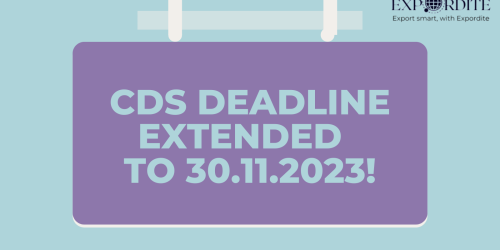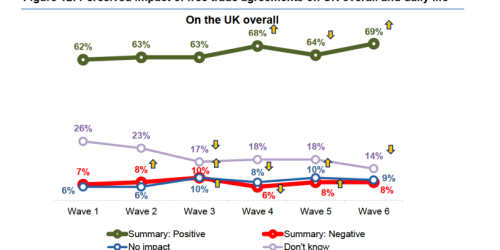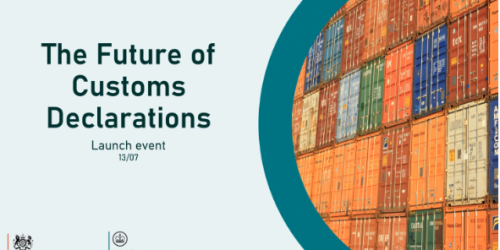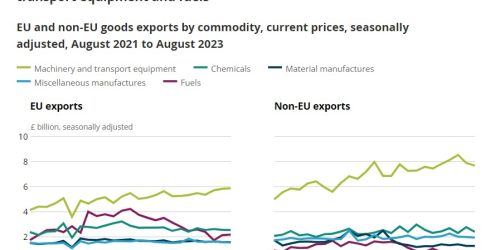HMRC Replaces CHIEF With CDS for Import Declarations

Also published on Medium.
UPDATE: The new CDS deadline for exporters is 30.11.2023.
HMRC, in a significant move towards the digital transformation of the UK’s governmental services, is replacing its decades-old import declarations software this week.
The new system, known as “Customs Declarations Service,” or “CDS,” is an essential upgrade for British international traders. It replaces the “Customs Handling of Import and Export Freight software,” or “CHIEF,” which has been around since 1994.
Journey to CDS
CDS first launched in 2018 and has been fully operational for all shipments from mainland GB into Northern Ireland since January 2021. However, the transition first started almost a decade ago.
What Was CHIEF?
CHIEF was the software that recorded import and export declarations. British traders have used CHIEF for almost 30 years for international trade compliance.
Why Move to CDS?
In 2013, the European Union adopted a new Union Customs Code (UCC) to modernise the customs procedures, making their digitisation obligatory for the Member States. And that’s when the HMRC began working to replace the ageing technology of CHIEF with a more flexible, scalable, and cost-effective solution.
After the Brexit vote in June 2016, the government put this process on hold. However, it was resumed soon after, as the exit from the customs union would mean over 250 million more customs declarations filed annually. CHIEF simply didn’t have the capacity to handle them, which reinforced the need for CDS.
In addition, CDS is designed to comply with the Northern Ireland protocol, which CHIEF wasn’t.
HMRC has postponed the launch of CDS several times for reasons related to software architecture, security, and Brexit complications, to name a few.
However, the deadlines — this Friday and 30th of November, 2023 — are a certainty, and the British traders must bear them in mind.
CDS vs. CHIEF – Key Differences
Firstly, the bases and, therefore, the formats for the two systems are very different. CHIEF software was based on paper forms and rules contained in the Community Customs Code (CCC) and the Single Administrative Document harmonisation rules and boxes.
On the other hand, CDS is a digital-first cloud-based system based on UCC and the data integration and harmonisation rules.
Most fields (data elements), in CDS, except the name and address fields, are in code rather than free-text format, like in CHIEF. There are more such fields in CDS than boxes in CHIEF, and traders must complete them all correctly. Otherwise, the declaration will be rejected.
If you’re used to the CHIEF format, it might take a bit of time to get used to CDS, as it has 91 single-use data elements contained in eight groups, as opposed to CHIEF’s 68 multi-use text boxes.
Secondly, CDS has different tariff requirements. A declaration will be rejected if a trader tries to use CHIEF tariffs. My software Expordite will allow you to look up the tariffs and codes for your exports and view comprehensive lists of measures applicable to them specifically.
Thirdly, the codes (CPCs) in the two systems are different, and there’s no correlation between them. The 7-digit CHIEF codes are replaced in CDS by a two-part code consisting of a 4-digit Procedure Code and several 3-digit Additional Procedure Codes. You, as a trader, would need to select the correct code in CDS for your declaration to be accepted.

To ensure that your declaration is accepted, your customs software supplier must be integrated with HMRC’s most up-to-date Trade Tariffs API. The Expordite solution can help you find the correct code for your commodity by pulling the most current Tariffs data directly from HMRC and providing the measures you need to bear in mind when exporting your goods.
Finally, there are some differences related to the payment methods. The way you process your declaration payments will change with CDS. How you’ll be affected depends on which of these payment methods you use. Here’s a brief overview of how you can be affected:
- Cash accounts. In CDS, the cash accounts replace CHIEF’s Flexible Accounting System (FAS) and are allocated to every importer. You can pay funds into your cash account and use the funds to pay for declarations. You can also authorise an agent to use their cash account to pay for declarations on your behalf.
- Duty deferment accounts. A duty deferment account allows you to make one payment each month for any imports, rather than paying every time you import goods. You can also top it up.
- Immediate payments. You can choose to pay at the point of making an import declaration by a corporate card, BACs CHAPS or FasterPayment.
What Does It Mean for UK Importers?
UK importers will no longer be able to use CHIEF to submit their import declarations after 30.09.2022.
However, HMRC has recently announced that it’s possible for some traders to apply for an extension of up to one month.
There’s a caveat, however. Only those traders that can prove that they’ve been physically unable to move to CDS (e.g., issues with Government Gateway) are eligible for the extension. So, if you haven’t already done so, please switch to CDS this week, or if you can’t, apply for the extension.
There are many agents out there who can help the UK importers transition to CDS and make import declarations the new way. It’s vital to make sure that the agent is CDS-ready.
What Does It Mean for UK Exporters?
For British businesses who want to export their goods abroad, the change from CHIEF to CDS comes into force on the 1st of April, 2023. They’d need to submit their export declarations via CDS from that date onwards, as CHIEF and NES systems will no longer be available.
It seems like a long way away from now. However, CDS is already being used by many traders across the UK, and I recommend that you start working to make the move as soon as possible. If you haven’t already done so, make sure to register for an EORI number and Government Gateway ID. They’re required for access to CDS, along with your UTR number.

CDS export declarations are vastly different from CHIEF declarations as I specified. It would take some time for you or your broker to get used to them, and the time taken to complete them can adversely impact your deliverables.
With the software provided by my company Expordite, which will launch later this year and integrate with CDS, you’ll have an easy time making the switch and exporting your fantastic product all over the world. Sign up for Expordite updates here!







Amazing! Its truly remarkable piece of writing, I have got much clear idea regarding from this article.